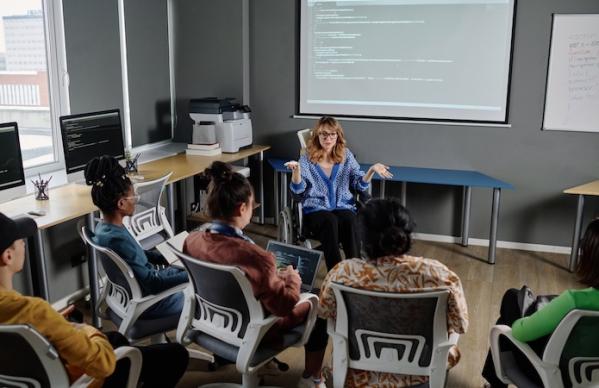We are using cookies to collect data that help us give you the best experience of our site, by continuing to use the site, you are agreeing to our use of cookies.
Read more
July 2024
-
Coaching for High Stakes: Strategies for Managing C-suite Challenges
Managing C-suite challenges requires specific skills and strategies. These high-level executives face unique pressures and responsibilities that influence the entire organisation. As a manager or coach, guiding them effectively can lead to better decision-making and overall success. C-suite executives need to trust their advisors and feel confident in their abilities. Building that trust and credibility is crucial. Effective communication techniques... -
Bridging Gaps: Effective Communication Skills to Engage Gen Z Talent
Effectively communicating with Gen Z talent can be a game-changer for organisations. This generation, born between the late 1990s and early 2010s, has distinct communication preferences shaped by technology and social changes. These preferences mean that traditional communication methods may not be as effective. To engage Gen Z employees, it’s essential to understand how they prefer to communicate and what... -
Beyond Basics: Advanced Training Skills That Every Manager Should Master
Being a manager involves more than just overseeing tasks and ensuring deadlines are met. Effective management requires mastering advanced skills that can drive team performance and foster a positive working environment. While basic management skills are essential, advanced skills set exceptional managers apart from the rest. Advanced training skills help managers communicate more effectively with their teams, solve complex problems... -
The Mentorship Revival: How Gen Z is Shaping New Coaching Requirements
The entry of Gen Z into the workplace is changing the way we view mentorship and coaching. Born between the mid-1990s and early 2010s, Gen Z employees bring fresh perspectives and unique needs that traditional mentorship programmes may not address. Understanding these needs is crucial for creating effective mentorship experiences that resonate with this generation. Gen Z values authenticity, continuous... -
Facing Forward: Adaptive Training Techniques for the Future-centric Workplace
The workplace is evolving faster than ever. Technology, remote work, and new business models are constantly changing how we work. Companies need to adapt their training techniques to keep up with these changes. Future-centric workplaces require employees to be flexible, skilled, and ready to face new challenges. Businesses must invest in adaptive training to help their teams stay ahead. Traditional... -
The Silent Potential: Unlocking the Strengths of Introverted Gen Z Workers
Gen Z, those born between the late 1990s and early 2010s, are entering the workforce in significant numbers. This generation brings unique qualities and skills. Among them are introverted individuals who prefer quieter environments and deep thinking. Though they may not be as outwardly expressive as their extroverted peers, introverted Gen Z workers have a lot to offer. Understanding the...
Page
- Page Previous
- Page 1
- You're currently reading page 2



 0800 302 9344
0800 302 9344 Info@targettrg.co.uk
Info@targettrg.co.uk






